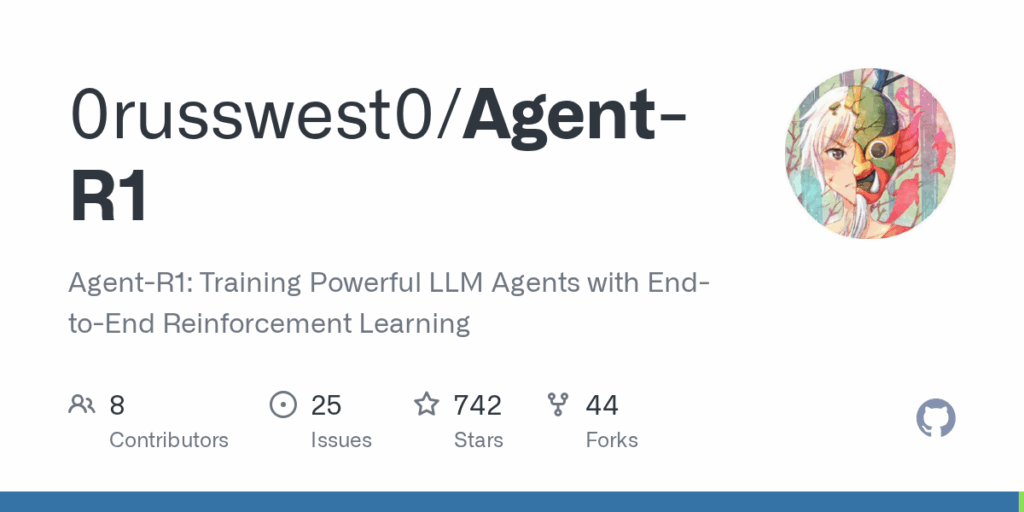Agent R1
Basic Information
Agent-R1 is an open-source framework to train language-model-driven agents using end-to-end reinforcement learning. It is designed for researchers and developers working at the intersection of reinforcement learning and agent design, enabling the creation of agents that learn full interaction trajectories rather than hand-engineered workflows. The repository provides abstractions for defining domain-specific tools and reward functions so users can extend the framework to their own environments. It includes tutorials, example tools and environments, data preprocessing scripts, and inference utilities so practitioners can both train and deploy models. The project emphasizes multi-modal capabilities and practical training algorithms, and it documents algorithm details, setup instructions, and community resources to help teams reproduce experiments and build custom agent applications.








